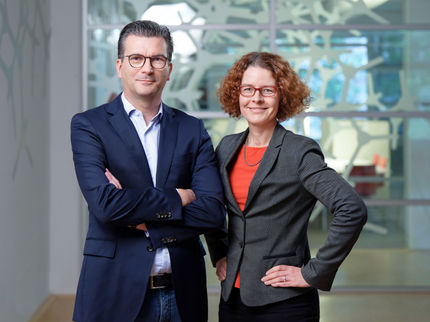Black Magic for Greener Chemistry
Markus Antonietti receives Arkema Prize from the French Académie des Sciences
Advertisement
The prestigious 25,000-euro prize recognizes Prof. Markus Antonietti's groundbreaking research in carbon catalysis. He is developing materials with tailored properties for more sustainable chemical synthesis: carbon materials are abundant in nature, consume less energy than metal catalysts, and can be reused. The same Académie once hosted Antoine Lavoisier, the 'father of modern chemistry,' who also marveled at carbon’s versatility.
The French Académie des Sciences has been proudly promoting the advancement of science since 1666—when it was founded by the Sun King, reflecting the patronage suggested by his nickname. Today, this tradition continues as the Académie honors outstanding researchers in a variety of disciplines. Among the 2024 laureates, chemist Markus Antonietti received the prestigious Arkema Prize, endowed with 25,000 euros, for his contributions to sustainable transformation reactions via carbocatalysis.
In a nutshell, carbocatalysis develops carbon-based materials to make chemical reactions faster, cost-effective, and more precisely tunable. It can be thought of as archaic versions of enzymes, only made from biological molecules, but without the biology: “This is what I like to call the black magic of carbocatalysis”- explains Prof. Markus Antonietti, director of the Colloid Chemistry Department at the MPICI since 1993. Black carbon powders can replace for instance rare metals like platinum and iridium in catalysis. Produced at very low cost from renewable resources, carbons undoubtedly contribute to greener chemistry by relying on more sustainable resources, and the reactions they support consume less energy. For example, his research simplifies the generation of hydrogen and oxygen from water and the conversion of CO2 into several valuable molecules employing only water and electricity.
Behind what appears to be black magic with a green horizon, there’s a lifetime of dedication, incessant intellectual exchange, and creativity. This is what the Académie recognizes today with Antonietti, who follows in the footsteps of many illustrious scientists.
The building where the prize is awarded has survived at least two revolutions: the one that began with the storming of the Bastille in 1789, and the one sparked by Antoine Lavoisier’s Traité élémentaire de chimie published in the same year. Lavoisier, a member of the Académie, redefined chemistry with his experimental rigor and vivid curiosity. He once dared to burn diamonds to prove that they were made of carbon.
More than 200 years later, Antonietti is keeping this spirit alive, using one of nature's most common elements to shape the chemical reactions of tomorrow.





























































